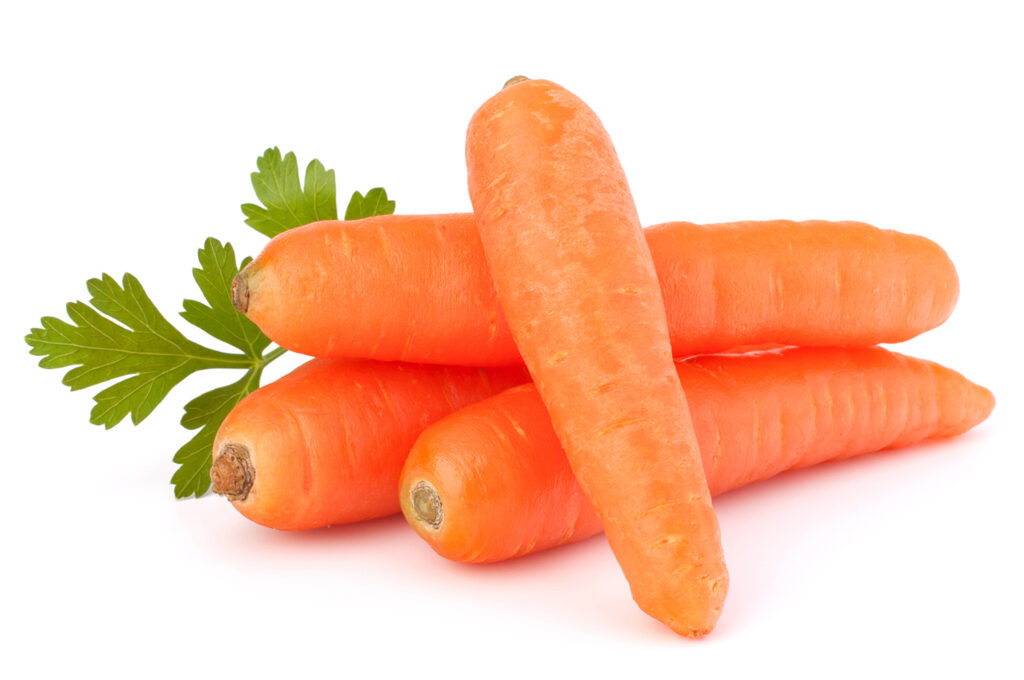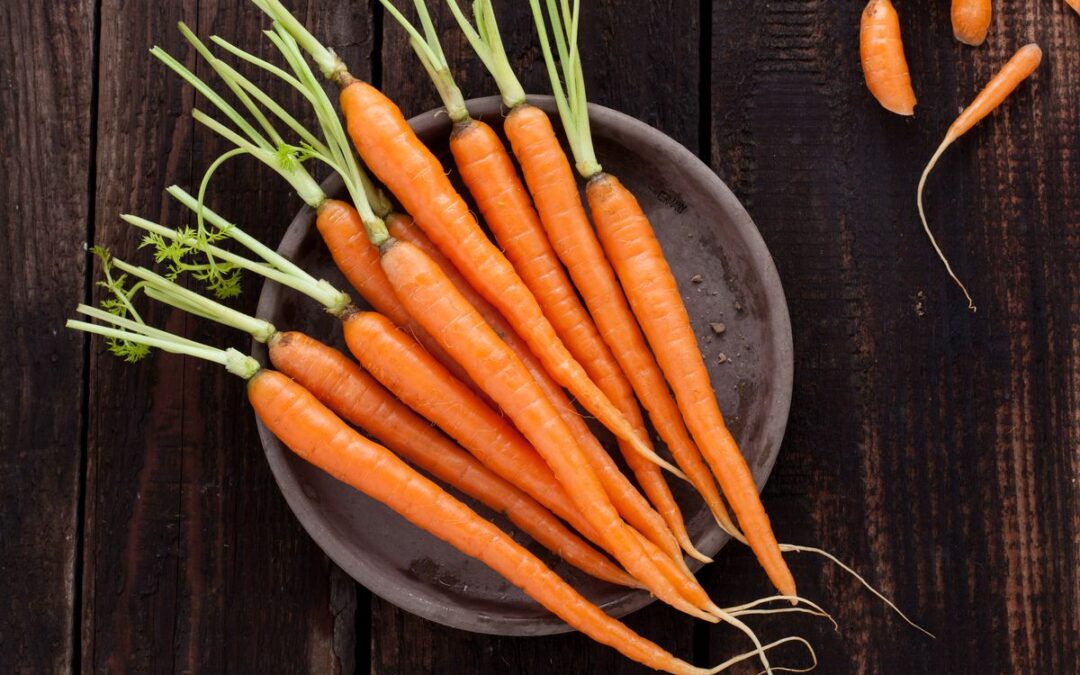Asian Carrot
“Asian carrot” is not a specific carrot variety but rather a term that is sometimes used to refer to carrots commonly found in Asian cuisine or grown in Asia. Different types of carrots are used in various Asian dishes, and their characteristics can vary widely. Here are a few examples of carrots and their use in Asian cuisine:
Asian Carrot Meaning in Urdu:
The term “Asian carrot” in Urdu can simply refer to carrots that are commonly used in Asian cuisine. In Urdu, “carrot” is often referred to as (gaajar), and “Asian carrot” might be described as (Asian gaajar) to specify that it’s the type of carrot used in Asian cooking.
Asian Carrot Recipe:
An “Asian carrot recipe” could encompass a wide range of recipes from Asian cuisines that use carrots as an ingredient. Here’s a simple example of an Asian-inspired carrot side dish:
Asian-Style Sesame Carrot Recipe:
Ingredients:
Carrots, julienned or sliced into matchsticks
Soy sauce
Sesame oil
Rice vinegar
Sugar
Sesame seeds (toasted)
Red pepper flakes (optional for heat)
Instructions:
Steam or blanch the julienned carrots until they’re slightly tender but still crisp.
In a bowl, mix soy sauce, sesame oil, rice vinegar, sugar, and a pinch of red pepper flakes (adjust to your taste).
Toss the cooked carrots in the sauce and sprinkle with toasted sesame seeds.
Serve as a flavorful Asian carrot side dish.
Asian Carrot Salad:
Asian carrot salad is a popular side dish in many Asian cuisines. It often includes shredded or julienned carrots along with various seasonings and ingredients. Here’s a basic recipe for an Asian carrot salad:
Asian Carrot Salad:
Ingredients:
Carrots, shredded or julienned
Rice vinegar
Soy sauce
Sesame oil
Sugar
Garlic, minced
Fresh ginger, grated
Sesame seeds (toasted)
Chopped green onions
Instructions:
In a bowl, mix rice vinegar, soy sauce, sesame oil, sugar, minced garlic, and grated ginger to create the dressing.
Toss the shredded or julienned carrots with the dressing.
Garnish with toasted sesame seeds and chopped green onions.
Chill before serving for the best flavor.

Asian Carrots Pickled:
Pickled carrots are common in many Asian cuisines, and they can be used as a side dish or a condiment. The pickling liquid typically contains a combination of vinegar, sugar, and various seasonings. Here’s a basic recipe for pickled Asian carrots:
Asian Pickled Carrots:
Ingredients:
Carrots, thinly sliced or julienned
Rice vinegar
Sugar
Salt
Water
Optional flavorings: garlic, ginger, chili flakes, or star anise
Instructions:
Combine equal parts rice vinegar and water in a saucepan, add sugar and salt to taste. Add any optional flavorings.
Heat the mixture until the sugar and salt dissolve, then let it cool.
Place the carrots in a jar or container, and pour the pickling liquid over them.
Seal the container and refrigerate for several hours or overnight for best results.
Asian Carrot Cake:
Asian carrot cake is a variation of carrot cake that incorporates flavors and ingredients commonly found in Asian cuisine. This might include spices like ginger and cardamom, and ingredients like coconut or sesame. The exact recipe can vary, but it’s a delightful twist on the classic carrot cake, offering a fusion of flavors.
Asian Carrot Soup:
Asian carrot soup is a soup with a base of pureed carrots, often infused with Asian flavors. Common ingredients might include ginger, lemongrass, coconut milk, or spices like curry. It’s a flavorful and nutritious soup option with a unique twist.
Asian Carrot Vitamin:
There isn’t a specific “Asian carrot vitamin.” Carrots, in general, are rich in vitamins, particularly vitamin A. They also provide vitamins C, K, and various B vitamins. The choice of the term “Asian” might imply that these vitamins come from carrots commonly used in Asian dishes. Vitamin A, in particular, is essential for maintaining good vision and a healthy immune system.
Carrot Benefits for Skin:
Carrots are known for their potential benefits for the skin. They are rich in beta-carotene, which the body converts to vitamin A. This vitamin is crucial for skin health as it helps repair and maintain skin tissues. Carrots can also provide antioxidants that protect the skin from damage caused by free radicals. Regular consumption of carrots can contribute to a healthy complexion and may even help with conditions like acne and dry skin.
Carrot Nutrition: Carrots are a highly nutritious vegetable. They are low in calories but packed with essential nutrients. Here’s a general overview of carrot nutrition (per 100 grams of raw carrots):
Calories: Approximately 41 kcal
Carbohydrates: About 10 grams
Fiber: Around 2.8 grams
Vitamin A: Extremely high, providing over 100% of the daily recommended intake
Vitamin C: Provides about 7% of the daily recommended intake
Vitamin K: Contains about 13% of the daily recommended intake
Potassium: Around 320 mg
Various other vitamins and minerals, including B vitamins, potassium, and biotin
General Benefits of Carrots:
Rich Source of Nutrients: Carrots are packed with essential vitamins and minerals, including vitamin A, vitamin C, vitamin K, potassium, and dietary fiber.
Good for Eye Health: Carrots are well-known for their high beta-carotene content, which the body converts into vitamin A. Vitamin A is crucial for maintaining good vision and preventing conditions like night blindness.
Antioxidant Properties: Carrots are rich in antioxidants, such as beta-carotene, which help protect the body’s cells from damage caused by free radicals.
Heart Health: The fiber and potassium in carrots can contribute to heart health. They may help lower blood pressure and reduce the risk of cardiovascular diseases.
Digestive Health: The dietary fiber in carrots aids in digestion and may help prevent constipation.
Weight Management: Carrots are low in calories and high in fiber, making them a healthy snack option for those looking to manage their weight.
Benefits of Carrots for Men:
Prostate Health: Some studies suggest that a diet rich in carotenoids like those found in carrots may be associated with a reduced risk of prostate cancer.
Improved Sperm Quality: Antioxidants in carrots may help improve sperm quality by reducing oxidative stress.
Benefits of Carrots for Hair:
Promotes Hair Health: The vitamin A in carrots is essential for hair health. It helps in the production of sebum, a natural oil that keeps the scalp and hair moisturized.
Prevents Hair Loss: The vitamins and antioxidants in carrots help strengthen hair, reduce hair breakage, and prevent hair loss.
Benefits of Eating Carrots at Night:
Improved Sleep: Carrots contain tryptophan, an amino acid that can help promote better sleep. Eating a small serving of carrots at night may contribute to a good night’s sleep.
Weight Management: A light and healthy snack like carrots at night can help control late-night cravings and prevent overeating before bedtime.
Health Benefits of Carrots for Women:
Menstrual Health: Carrots are a source of iron, which is important for maintaining healthy menstrual cycles and preventing anemia.
Pregnancy Nutrition: Carrots are rich in folic acid, a crucial nutrient for pregnant women as it helps prevent birth defects. Additionally, the vitamin A in carrots supports the development of the fetus.
Skin Health: The antioxidants in carrots can help women maintain healthy and glowing skin. Carrots may reduce skin issues related to aging and sun exposure.
Breast Health: Some studies suggest that a diet rich in carotenoids, such as those found in carrots, may be associated with a reduced risk of breast cancer.
Carrot Side Effects:
Stomach Upset: Consuming excessive amounts of carrots can lead to stomach discomfort and flatulence due to their high fiber content.
Allergic Reactions: In rare cases, some people may be allergic to carrots, leading to symptoms like itching, swelling, or hives.
Skin Discoloration: Carotenemia, a condition where the skin turns slightly yellow or orange, can occur if a person consumes very high quantities of carrots. It’s harmless and reversible but may be concerning for some.
Carrot Side Effects in Babies:
For most babies, pureed carrots are a healthy and safe food to introduce when starting solids. However, watch for signs of allergies or digestive issues. Always consult a pediatrician before introducing new foods to your baby’s diet.
Advantages and Disadvantages of Carrots:
Advantages:
Rich in vitamins, particularly vitamin A and vitamin C.
Good source of dietary fiber.
Low in calories and fat.
Antioxidants in carrots can help reduce the risk of certain chronic diseases.
Promote healthy skin and vision.
Disadvantages:
High sugar content (natural sugars), so they should be consumed in moderation, especially for individuals watching their sugar intake.
Overconsumption can lead to digestive discomfort or carotenemia.
They should be included as part of a balanced diet, not as the sole source of nutrients.
Carrot Juice for Eyes:
Carrot juice is often associated with improving eye health due to its high beta-carotene content, which the body can convert into vitamin A, important for good vision.
While carrots and their juice can support eye health, they won’t cure serious eye conditions. A balanced diet with a variety of nutrients is essential for overall eye health.
Carrot for Weight Loss:
Carrots can be a valuable addition to a weight loss diet. They are low in calories and high in fiber, which can help you feel full and satisfied with fewer calories.
They can also be a healthy snack option when you’re trying to manage your weight. However, it’s important to incorporate them as part of a balanced diet and not rely solely on carrots for weight loss.
Carrot Calories:
On average, a medium-sized carrot (about 61 grams) contains approximately 25 calories. The calorie content of a carrot can vary slightly based on its size and variety.
Carrot Flower:
Carrot plants produce white or yellow flowers. These flowers are typically small and have five petals. They appear on the plant in the second year of growth, but carrots are typically harvested before they reach the flowering stage because the roots are the most commonly consumed part of the plant.
Carrot Medicinal Uses:
Carrots have a long history of medicinal uses in traditional and folk medicine. Some potential medicinal uses of carrots include:
Eye Health: Carrots are known for their high beta-carotene content, which can help maintain good vision and prevent night blindness.
Digestive Health: The fiber in carrots can aid in digestion and promote a healthy gut.
Antioxidant Properties: Carrots are a source of antioxidants, which may help protect cells from damage caused by free radicals.
Carrot Origin:
Carrots are believed to have originated in the region now known as Afghanistan and were first cultivated around 900 CE. From there, they spread to the Mediterranean and Asia. Over time, different varieties of carrots were developed, leading to the orange carrot that is most commonly consumed today.
Carrot Scientific Name:
The scientific name of the carrot is Daucus carota. This name encompasses both the cultivated carrot, known as Daucus carota subsp. sativus, and the wild carrot, known as Daucus carota subsp. carota. Wild carrots are the ancestors of the cultivated carrots we eat today.
Chantenay carrots:
Chantenay carrots are a type of heirloom carrot that is known for its distinct shape and sweet flavor. These carrots are shorter and thicker than traditional carrot varieties, typically reaching a length of 4-5 inches (10-12.5 cm) and a diameter of 1-2 inches (2.5-5 cm). They are wider at the top and taper to a point, resembling a cone or a stubby, conical shape.

Chantenay carrots can be found in various colors, including orange, red, and yellow. They are known for their natural sweetness and tend to have a crisp, dense texture, which makes them great for cooking. They are often used in roasting, baking, and canning, as well as in various culinary dishes.
These carrots are sometimes preferred for their ease of growing in home gardens because of their tolerance to a variety of soil types and their resistance to splitting. Chantenay carrots are also a good choice for preserving and storing due to their thick roots. They have been popular in home gardening and cooking for many years and are valued for their taste and versatility in the kitchen.

